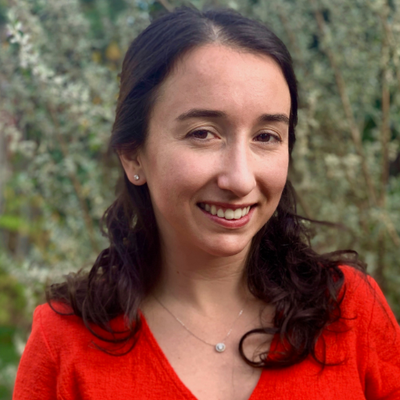[TikTok] is a vital space for political conversations, especially among specific audiences… Especially for Trump, if he feels like those are voters who are disillusioned with Biden for..."
Valerie Wirtschafter is a fellow in Foreign Policy and the Artificial Intelligence and Emerging Technology Initiative. Her research falls into two thematic areas: (1) democratic resilience and democratic erosion; and (2) artificial intelligence, technology, and the information space, often with a regional focus on the Western Hemisphere. Using a data driven approach, Wirtschafter’s work has helped to reframe discussions around underexplored media and novel challenges to the information space, provided new tools and methods for academic and policy research, and reshaped policy at leading tech companies.
Her academic and policy research utilizes novel data-driven strategies and methods to explore the reach of foreign influence operations, impact of content moderation and algorithms, and scope of AI generated content across the new media information ecosystem, including social media platforms, search engines, and podcasting. She also regularly authors commentaries on contemporary politics in Latin America. Her research has been featured in the New York Times, Washington Post, the Wall Street Journal, PBS NewsHour, BBC, Reuters, the Associated Press, and elsewhere.
Wirtschafter also oversees the adoption of data science methods and emerging technologies across Brookings. In this capacity, she co-led the development of Brookings’s recently adopted provisional principles for the use of generative AI, an innovative piece of work that is helping set the standard for the use of generative AI across the think tank space.
Wirtschafter received her doctorate in political science from the University of California, Los Angeles in 2021. She has designed and taught courses on international politics in the digital age and lectures on the role of data-driven analysis for policy research. Prior to her doctoral training, she worked as a researcher focused on Latin America at the Council on Foreign Relations and as a consultant focused on global health and development issues in Brazil. She has conducted research and/or worked in both Cuba and Brazil and speaks both Spanish and Portuguese.
Affiliations:
- Council on Foreign Relations, term member
- Global Internet Forum to Counter Terrorism, member, Hash Sharing Working Group
- Christchurch Call Advisory Network, member
- American Political Science Association, Centennial Center, member, advisory board
-
Areas of Expertise
- Computational social science methods
- Data science and data visualization
-
Past Positions
- Senior Data Analyst, Artificial Intelligence and Emerging Technology Initiative, The Brookings Institution
- Teaching Fellow, University of California, Los Angeles
- Research Associate, Council on Foreign Relations
- Senior Associate, Global Health Strategies
-
Education
- Ph.D., University of California, Los Angeles
- M.A., University of California, Los Angeles
- B.A., Bowdoin College
-
Languages
- Portuguese
- Spanish
Media and Appearances
Valerie Wirtschafter’s report on tracing the rise of Russian state media on TikTok was cited in an article on limiting Russian and Chinese media on the platform in a big election...
There is quite a bit of growth opportunity to reach potential votes [on TikTok], especially young voters and Spanish-speaking voters.
On PBS Newshour, Valerie Wirtschafter discusses the disinformation war in the Israel-Hamas conflict.
Valerie Wirtschafter’s co-authored paper in The Journal of Online Trust and Safety on the efficacy of X’s crowdsourced content moderation system was cited in an article taking stock of...
Not only is [podcasting] a space where you can really say whatever you want with very little repercussions or very little sort of pushback — it’s also a space where people who are..."
[On podcasts potentially spreading misinformation] The podcaster is in your ear. It’s a really unique relationship in that respect, and so the podcaster gains a level of authority and a..."
